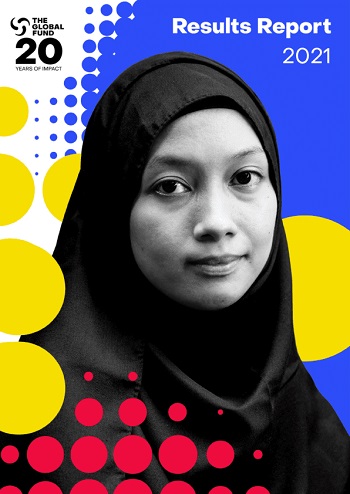
Global Fund results report reveals COVID-19 devastating impact on HIV, TB and malaria programmes

Executive Director of the Global Fund, Peter Sands said for their 20th Anniversary they had hoped to focus on the result report on the extraordinary stories of courage and resilience, that made possible the progress they have achieved against, HIV, TB and malaria over the last two decades.
“But the 2020 numbers force a different focus, they confirm what we feared might happen when COVID-19 stuck,” he added.
The result report reveals the catastrophic impact the COVID-19 pandemic had on the fight against TB worldwide. In 2020, the number of people treated for drug resistant TB in the countries where the Global Fund invests dropped by a staggering 19%, with those on treatment for extensively drug resistant TB registering an even bigger drop of 37%.
The number of HIV positive TB patients on anti-retroviral treatment as well as TB treatment dropped by 16%.
The report also highlighted a significant decline in HIV testing and prevention services for key and vulnerable populations who were already disproportionately affected.
Compared with 2019, people reached with HIV prevention programs and services declined by 11% while young people reached with prevention serviced declined by 12%. Mothers receiving medicine to prevent transmitting HIV to their babies dropped by 4.5%. HIV testing dropped by 22%, holding back HIV treatment initiation in most countries.
The report showed interventions to combat malaria appear to have been less badly affected by COVID-19 than the other two diseases. Thanks to adaptation measures and the diligence and innovation of community health workers, prevention activities remained stable or increased compared to 2019. The number of mosquito nets distributed increased by 17%, structures covered by indoor residual spraying increased by 3%. In 2020, 11.5 million pregnant women received preventative therapy. However, suspected cases of malaria tested fell by 4.3% and progress against the disease stalled.
The Global Fund partnership’s rapid and determine response to COVID-19 prevented an even worse outcome. In 2020, the Global Fund disbursed US$4.2 billion to continue the fight against HIV, TB and malaria and strengthen systems for health and approved an additional US$980 million in funding to respond to COVID-19. As of august 2021, the Global Fund has approved a total of US$3.3 billion to more than 100 countries to adapt lifesaving HIV, TB and malaria programs, provide critical tests, treatments and medical supplies, protect front-line health workers and urgently reinforce fragile system for health.
These investments along with fast action and funding from donors, governments, communities and health partners helped mitigate the impact of COVID-19 on HIV, TB and malaria and achieve the progress made in the fight against the three diseases.
The key results for 2020 in countries where the Global Fund invests include 21.9 million people received lifesaving anti-retroviral therapy for HIV in 2020, an 8.8% increase compared to 2019 despite COVID-19, 8.7 million reached with HIV prevention services in 2020, 4.7 million people treated for TB in 2020, 194,000 children in contact with exposed to TB patients received preventative therapy in 2020 and 188 million mosquito nets distributed to protect families from malaria, a 17% increase compared to 2019 despite COVID-19.
Sands said they continue to save lives. “In the face of the extraordinary challenges caused by the COVID-19 pandemic, our partnership demonstrated flexibility and determination, delivering medicine, supplies and care to millions of people around the world. Countries we invest in responded quickly to COVID-19 using the same laboratories, disease surveillance, community networks, trained health workers and supply chains that were created to fight HIV, TB and malaria,” he added.
Sands said despite the horrible toll COVID-19 has taken, the pandemic presents us with a chance to build a better, more equitable and healthier world.
“Together, we have changed the trajectory of HIV, TB and malaria and we are determined to continue to do so. If we continue to innovate and collaborate, at global, national and local levels, we can end HIV, TB and malaria, beat COVID-19 and build a much stronger foundation for pandemic preparedness and response,” he concluded.











































